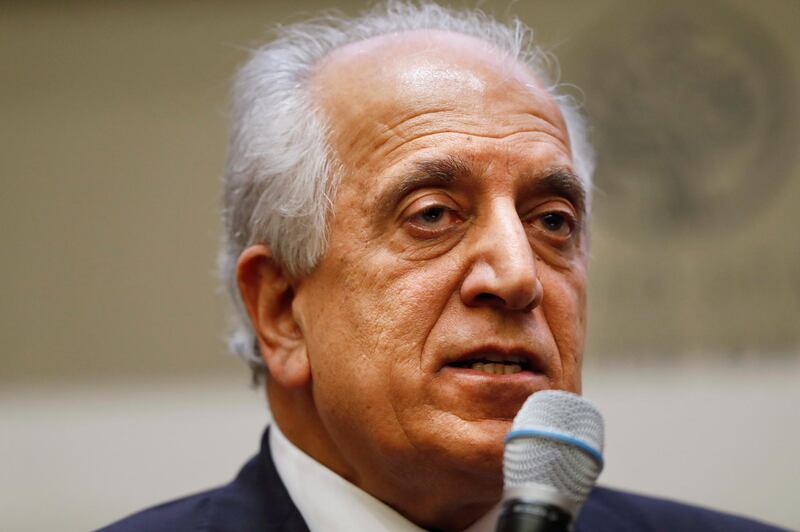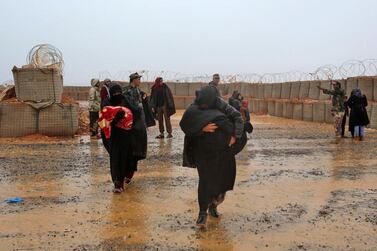The Taliban's ruling council agreed on Sunday to enforce a temporary ceasefire across the whole of Afghanistan in a move praised by experts as a "major step forward”.
While it is unclear when the ceasefire would begin, AP reported the temporary cessation of hostilities would last 10 days.
It is hoped the period will allow the signing of a peace agreement between the US and Afghanistan.
Graeme Smith, a senior consultant at International Crisis Group told The National that the plan had been approved by Taliban leaders in Doha, where the Taliban has its office.
It was under consideration by the senior members of the insurgent group in Quetta, Pakistan, Mr Smith said.
He said leaks from negotiators indicated that the deal was similar to that worked out by the US and the Taliban earlier in 2019.
“The leaks sound like in keeping with the theme we're hearing, a copy-paste version of the same deal scuppered in September but with greater emphasis on reduction of violence,” Mr Smith said.
Year-long talks between the Taliban and Washington came to an abrupt halt in September after US President Donald Trump called off the negotiations.
Mr Trump's decision followed a deadly attack by the insurgent group on compound in the Afghan capital of Kabul, in which a US soldier died.
Discussions between the parties restarted in November, reviving hope for an end to the conflict.
There has been no US response to the Taliban’s announcement.
In Qatar, Taliban spokesman Suhail Shaheen has said on Twitter that media reports of the ceasefire were “unverified”.
Mr Shaheen said any information about the truce would be released properly at the right time.
If the truce were successfully enforced, it would be the second time a country-wide ceasefire has been implemented in Afghanistan since the US invasion of the country in 2001.
The Taliban agreed to a three-day ceasefire with the Afghan government during Eid in June 2018.
The longer ceasefire is meant to create a chance for the Taliban to talk directly to other Afghan political interests.
“European partners have previously told US negotiators that the quickest possible arrangements would entail five days between a US-Taliban deal and intra-Afghan negotiations,” Mr Smith said.
The Afghan government has not had any official reaction to the ceasefire but a senior official said the government in Kabul welcomed any reduction in violence.
They said the government had already prepared plans for a ceasefire.
The conflict in Afghanistan was the world’s deadliest in the past year. Figures collected by Armed Conflict Location and Event Data showed 44,000 people were killed in fighting in 2018.
The UN mission in Afghanistan said 8,200 civilians were killed in the country since September this year.
Mr Smith welcomed the ceasefire, saying as many as 1,000 lives could be spared during 10 days.
"Even a brief pause in the conflict is a major breakthrough,” he said.
Samira Hamidi, an Afghan activist and campaigner for Amnesty International also welcomed the pause in hostilities.
But Ms Hamidi also voiced concern over the decision not to involve the Afghan government in the conditions of the ceasefire and continuing negotiations.
“The United States cannot negotiate on behalf of Afghans for the future of Afghans,” she said.
"The agreement they are planning to sign is not known to anyone. We do not know what is the content and what conditions Taliban are imposing."
Ms Hamidi was also concerned that progress made in Afghanistan in recent years would be sacrificed in a peace deal.
“If strong actors are not included representing the people and the government of Afghanistan, I fear the Taliban will come back with their conservative mentality and red lines,” she said.
Ultimately, despite the setbacks in September, Mr Smith said there was cause for optimism.
"We have been waiting years for this moment,” he said. “This could be a major step forward towards the main event: the first formal talks between the Taliban, the Afghan government and other factions.”






